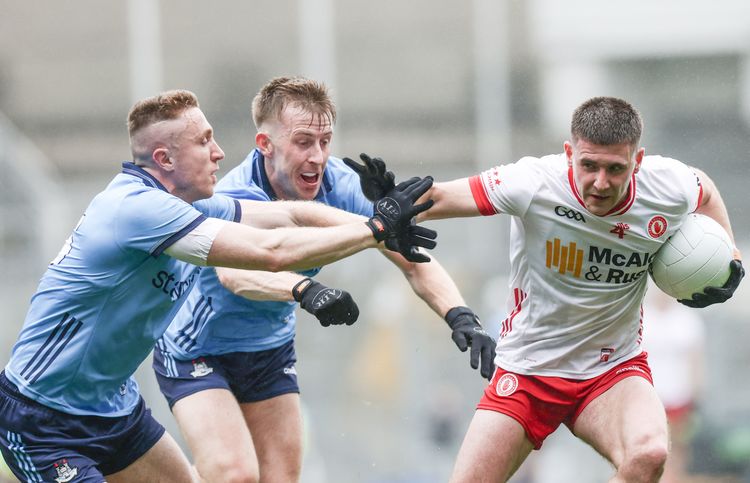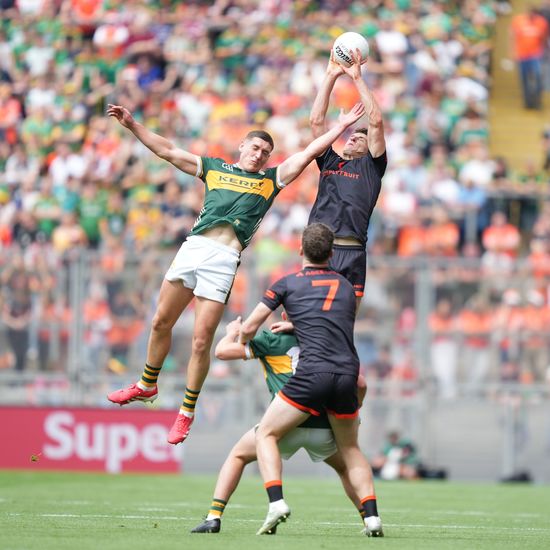John Breen's play "All It Stands" is set in his native Limerick.
By Peter McDermott
Some boys are sourcing car tires for their bonfire. A woman is about to give birth to twins. A man will die in a nearby city as his son leads a team into history.
It’s Tuesday, Oct. 31, 1978. Halloween. A nation’s honor is on the line.
That nation is New Zealand. Rugby is the national religion. Their players are more skillful, more athletic and, perhaps most important of all, simply bigger than everyone else’s. The All Blacks are supposed to beat all before them. Arrogance and attitude can be enough to see them through to victory.
The All Blacks in the fall of 1978 swept past Cambridge University, Cardiff, West Wales XV and London Counties on their way to Limerick. Afterwards, they had a grand slam of test wins against Ireland, Wales, England and Scotland. By the end of the 18-game tour, the New Zealanders had won 17. No match was tied; one was lost, 12-0, on that Halloween against the provincial side Munster at Thomond Park.
John Breen described it a “huge event in my life,” although he wasn’t among the 12,000 spectators at the ground. The Limerick playwright was instead one of those boys focused on alternative entertainment – the bonfire. “It was really impressive,” he recalled of that collective endeavor.
Twenty years later, as Munster and the sport generally were being professionalized, the game’s importance and the fuss surrounding it were largely forgotten. And so he wrote “Alone It Stands” to be performed in rugby clubs on gym mats. It has seventy-two parts played by six actors and no props (though a prop forward, red-headed Limerick schoolteacher Gerry McLoughlin, gets mentioned). It’s not just about what happened on Oct 31, Breen said, “It’s a portrait of the city in the days leading up to and after the game.”
In the two decades since it was written, “Alone It Stands” has toured abroad more often than the British and Irish Lions and is now on the curriculum of the Junior Cert, the state examination taken by 15- and 16-year-olds in Ireland. “That’s gratifying,” Breen said of the recognition.

Six actors in the red of Munster.
This week it gets its New York premiere as part of the 2019 Origin’s 1st Irish Theatre Festival. Breen will be on hand himself, being a resident of the city.
“We took the plunge,” he said of the move four years ago with his wife, Aideen Kane, who was already a citizen, their daughter Clara, now 15, and son Oscar, a 13-year-old who has begun his rugby career.
Breen played for Garryowen, though he insisted not very well. His play doesn’t require a knowledge of the sport, but he described it an “unapologetic celebration of Munster and Limerick rugby culture.”
Throughout much of the western world, rugby was traditionally seen as the game of the professional middle-classes and elite schools. In the Republic of Ireland, it’s usually the first sport in the fee-paying secondary schools run by the Jesuits, Holy Ghost Fathers and other priestly orders. In Limerick, however, it always had a more inclusive reputation and existed on a more or less equal footing with soccer, hurling and Gaelic football.
“There’s a simple explanation” Breen said.
Back in 1902, some soldiers from a north of England regiment challenged a group of dock-workers to a match. It became an annual event. The dock-workers named their club, inevitably enough, Shannon. Other trade guilds, like the stonemasons and the carpenters, had their teams, too.
It may not have been quite the working-class sport in the way it was in parts of South Wales; it attracted nonetheless players and fans from all socio-economic groups. Dockers playing alongside doctors might be a little bit of a cliché, said Breen, but “like all clichés, it’s one grounded in reality.”
The playwright has a little bit of fun with the status tensions between Shannon and Garryowen, the latter being seen as a little posher by some people in Limerick. Tony Ward, who scored two drop goals in the 1978 game, once commented that the bar Myles Breen, owned by the playwright’s father, was Limerick rugby’s one ecumenical space, where supporters of all of the city’s clubs could gather as equals.
Ward was one of a group of four Dublin-based players in the team. Two of those were Kerry natives, barrister Donal Spring and government agricultural inspector Moss Keane. Cork, the other rugby stronghold in the province, provided an additional four as well as wily coach Tom Kiernan, the former Ireland and Munster captain, and six were living in Limerick itself. Kiernan had also recruited a player from the London Irish club, who was from England, but nobody at the time seemed to know precisely where.
Limerick enjoyed hosting touring sides, not least because Munster teams always rose to the occasion. Kiernan had led the province to a win over Australia in 1967, and it had kept the margin to the minimum against the All Blacks a couple of times; in fact, they held them to a 3-3 draw in 1973. But this latest bunch of New Zealanders seemed to be in a new league altogether.
Kiernan came up with a tactical plan that worked. It was helped by some ferocious tackling from Seamus Dennison, which Breen has exploited for dramatic effect.
One New Zealand player said later: “We could have played them for a fortnight and we still wouldn’t have won.”
Breen interviewed many of those centrally involved when he was researching the play in the late 1990s.
He added the twin boys who had the “bad manners” to be born while Dad was at the game. There were real-life twins, a boy and a girl, in the backdrop to the famous win. They were the youngest of seven children of a woman killed when she was knocked off her bicycle in 1951. The late Maisie’s husband, Dan Canniffe, was then a serving Garda sergeant and a former Cork hurler of note. In 1978, his youngest son Donal gave his captain’s halftime talk to a team leading 9-0. The elder Canniffe collapsed shortly after he turned on his car radio for the second half and died later in a Cork hospital.
“When I think of that game, of course I think of my father,” Canniffe said in an Irish Examiner profile in 2016. “The two things are inextricably linked. They’re the same thing. A huge win and a huge loss. I can’t separate them.”
Canniffe was being interviewed on the occasion of Ireland’s victory over New Zealand at Soldier Field in Chicago. That was followed up with a home win in Dublin in the fall of 2018, only the second by any team against the All Blacks in Ireland.
“The Irish team are ruining it,” Breen quipped.
Munster of 1978 no longer stands alone.
The professionalization of the sport has, however, made rugby more inclusive, like in the Limerick of old. “Talent will out,” the playwright said.
With Ireland now going into this year’s Rugby World Cup one of the favorites, Breen believes that the Southern Hemisphere countries will still have the edge in Japan.
“Ireland and England will have a crack,” he said. “If Ireland can reach the semifinals, then anything can happen.” He just doesn’t think he will be able to watch.
Meantime “Alone It Stands,” professionally the “greatest gift in my life,” provides a rather more relaxing form of entertainment.
Breen promised lots of rollicking laughter for those turning up at 59E59 Theatres.
“We’ll blow the roof off that!” he said.
For tickets go to www.origintheatre.org.









